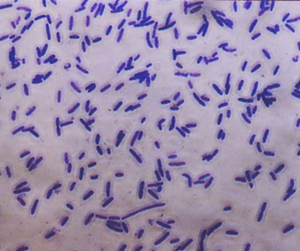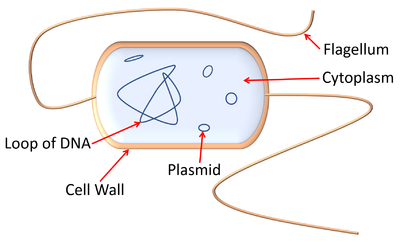Key Stage 3
Meaning

A magnified image of several bacteria.
Bacteria are unicellular micro-organisms that have no nucleus, mitochondria or chloroplast but do have cytoplasm, a cell membrane and a cell wall.
About Bacteria
- Bacteria can cause disease but some are important to keep us healthy.
- Some bacteria have a tail called a flagellum.
- Bacteria do not have a nucleus.
- The DNA of bacteria is in a loop. There are also smaller rings of DNA called plasmids.
| A diagram showing the features of a bacterium. |
Key Stage 4
Meaning
Bacteria are unicellular prokaryotes (with no membrane bound organelles).
About Bacteria
- Bacteria can cause disease but some are important to keep us healthy.
- Disease causing bacteria are known as pathogenic bacteria.
- Some bacteria have a tail called a flagellum propel it move through water.
- Some bacteria are encased in a slime capsule which protects them from phagocytes and some toxic chemicals.
- Bacteria do not have a nucleus.
- The DNA of bacteria is in a loop. There are also smaller rings of DNA called plasmids.
